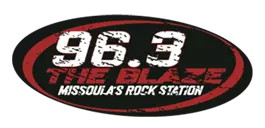
Shannon Larkin Opens Up on Sobriety, Almost Getting Fired From Godsmack
In a new interview with SPIN, Godsmack drummer Shannon Larkin opens up about his sobriety, how he found his own version of a higher power, his struggles with alcohol and how his addiction nearly resulted in him being fired from the band.
Shannon Larkin's Pre-Godsmack Days
Larkin began playing clubs at 13 and began drinking at 14 or 15, the drummer says, then recollecting his time in heavy metal band Wratchchild America, who released two albums on Atlantic records, one in 1989 and the other in 1991.
When he began gigging in his early teens, his parents had to go with him to the bars due to his age and the work restriction being 16 years old, but once his band began to play the same places regularly, the club owners let him play without his parents escorting him, which led to consuming alcohol at such a young age.
Wrathchild America, "Climbin' the Walls"
Backstage Parties on Tour With Godsmack
After he joined Godsmack in the early 2000s, Larkin's lifestyle changed due to the status of the band and the perceived expectations of what comes with being a big band on tour.
“In Godsmack, now you’re enabled—you can get anything you want, really, any time you want, and I took full advantage of it,” Larkin explains.
The drummer fell into the mindset of hosting a party for 50 or so people backstage every night and was the one usually pouring shots for everyone.
Larkin continues, "So when I started having issues with my alcoholism—blackouts, wrecking my Harley, and all these horrible things that happen to us alcoholics—I started thinking … ‘I play drums; I’ve done music all my life, so what am I going to do if I can’t party and be the guy? How am I going to even exist in this world that I’ve made for myself?”
Not Getting Help + Firing Threats
When asked if — before going to rehab — if there were times Larkin knew he needed to make a change in his partying lifestyle but elected not to, the drummer admits there were "many times" this occurred and his reluctance to address his addiction almost got him fired from Godsmack on multiple occasions.
"In fact, I was fired — well, not fired, but threatened to be fired from this band over the last 20 years, three times. And one of my issues [which is] one of many alcoholics' issues [is] when you get too drunk, you black out. And then when I blacked out, I would do these crazy things and pick fights with way bigger people and all kinds of crazy things."
Larkin says he always attacked the ones he "loved the most," which was an issue that was also confronted while in rehab. "They helped me find out why," he notes, choosing to keep those reasons private and that "everybody has their issues."
Regarding alcoholism and drug addiction, the 56-year-old reasons, "It's all about locating the issue, finding it, destroying it, and then finding your higher power, becoming better, finding happiness within."
"Pretty simple sounding," he offers, "Not so simple."
READ MORE: 10 Rock Stars Who Got Sober... and Stayed Sober
Going to Rehab + Finding His Higher Power
One of the common cornerstones of the recovery process involves the acknowledgement of a power higher than yourself.
For many, that falls under traditional religion and deities and Larkin shares some advice for those not aligned with those belief systems and how a higher power can be interpreted in many other ways, such as an atheist in the rehab center who found his higher power after battling ocean waves.
"I wasn't a person that even really believed in head shrinks. I was kind of against it even, but after feeling like I was going to die if I didn't quit, I went for it," Larkin goes on, shouting out Recovery Unplugged for helping him make the change.
"And for what it's worth, it worked," he adds, "and these people got in me and found all these hidden dark things that I wouldn't have really even remembered if it weren't for therapy and embracing it and going with it, saying, 'Look, I'm not the big therapy guy. I don't believe in it, really, but I'm gonna go with this, and I'm gonna do everything that they ask me and jump through all the hoops.' And it turned out that it changed my life."
"So, I guess the moral of the story is rehab works if you embrace it and go with it and believe in it," the drummer attests, "And it all comes from inside us; our happiness is in there. We don't need drugs and alcohol."
If you or someone you know is struggling with drug and/or alcohol dependence, help is available through the Substance Abuse and Mental Health Services Administration website. To speak to someone on the phone, dial 1-800-622-HELP (1-800-622-4357) or send a text message to 1-800-487-4889.
25 Best Rock + Metal Albums of 2023
Gallery Credit: Loudwire Staff



